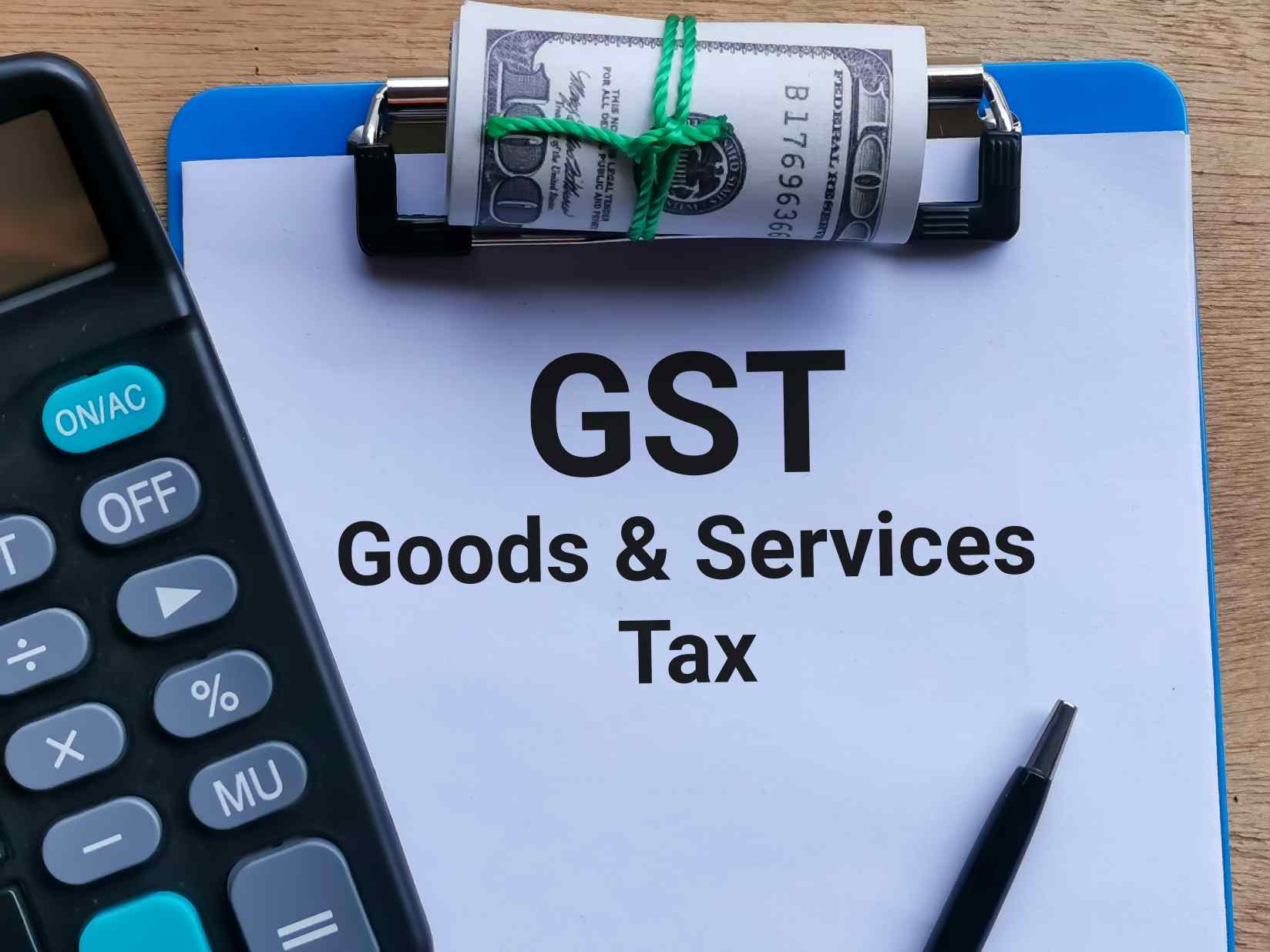Bike Insurance Online, Up to 80% Off
9000+
Cashless Garages
96% Claim
Settlement Ratio
3 Cr+
Policies Sold
I agree to the Terms & Conditions
Buy Online for Huge Savings

Bike insurance Online, starting ₹752
It's a brand new Bike
9000+
Cashless Garages
96% Claim
Settlement Ratio
3 Cr+
Policies Sold
What is the GST on Two-Wheeler Insurance in India?

When it comes to bike insurance in India, many policyholders are unaware of how much Goods and Services Tax (GST) affects their premium payments. Like many financial services, bike insurance attracts a flat 18% GST rate applied to basic policies and add-ons.
This taxation impacts how much you pay and your ability to reduce costs through smart strategies like Claim Bonuses, long-term plans, or Input Tax Credits (for business vehicles). In this article, we discuss how GST is calculated on bike insurance, how it affects your premium, and how you can manage these costs efficiently.

What is GST on Bike Insurance?
The Goods and Services Tax (GST) is a comprehensive, multi-stage, destination-based tax on every value addition in India. This aligns with the Indian government's plan to simplify the country's indirect tax structure, specifically to replace multiple indirect taxes, such as VAT, excise duty, and service tax, with one.
GST is a unilateral tax structure throughout the country, allowing for uniformity, transparency, and simplicity in taxation. The Premium under GST regulations is on the rise; however, when companies use bikes for business purposes, such as delivery, they can recover Input Tax Credit (ITC) charges to reduce the tax bill.
How GST Impacts Your Bike Insurance Premium?
Implementing 18% GST for bike insurance leads to an immediate rise in insurance premium prices.
- The tax rate for insurance services reached 15% under the previous system, including service tax with Swachh Bharat Cess and Krishi Kalyan Cess.
- Insurance premiums now face a 3% rise due to modifying GST taxation rules, affecting new policies and policy renewals.
For example, If your bike insurance premium amounted to ₹5,000 before GST, and the former tax (15%) made it ₹5,750. Neither the Premium nor tax value has changed since shifting to the GST application. Now, the Premium stands at ₹5,900 with a tax charge of ₹900. Due to its slight percentage rise, GST will affect future premiums, notably for individuals with long-term policies or purchasing expensive bikes.
Pre-GST (15%) – ₹5,750 (₹5,000 + ₹750 Tax)
Post-GST (18%) – ₹5,900 (₹5,000 + ₹900 Tax)
A 3% Increase in Tax = Higher Premiums
Despite appearing as an additional financial weight, the GST system introduces simple tax procedures and clarifies taxation practices more clearly. You can reduce premium effects by investigating extended policy durations and taking advantage of no-claim bonus benefits and provider insurance discount promotions.
Comparing Pre-GST vs Post-GST in Bike Insurance
The introduction of GST brought a noticeable change in how bike insurance premiums are taxed. Prior to GST, insurance services were taxed at 15%, which included Service Tax (14%), Swachh Bharat Cess (0.5%), and Krishi Kalyan Cess (0.5%). Here’s a quick comparison to illustrate the change:
How to Calculate GST on Your Bike Insurance Policy?
Calculating the GST tax amount for bike insurance premiums is a straightforward process. Here’s how you can do it:
Find Your Base Premium
Look for the base Premium in your policy document. This is what you pay for insurance before GST. Your bike’s type, age, model, and the coverage you need affect this amount.
Add GST to Your Base Premium
After you've got your base premium, add 18% GST. This gives you the tax to add to your total insurance cost.
Calculate Your Total Premium
To get the final amount you owe, use this simple math: Total Premium = Base Premium + GST Amount. If you have any discounts like a No-Claim Bonus (NCB), take them off your base premium before you figure out the GST.
Does GST Apply to Bike Insurance Renewals?
Yes, bike insurance renewal premiums are subject to GST in the same manner as initial policy premiums.
- Bike insurance renewal premiums include assessments of policy types, bike specifics, and other criteria the insurer considers before calculating.
- The 18% GST rate adds to the total premium cost regardless of the policy type between third-party, comprehensive coverage, and standalone own-damage plans.
- All renewals of bike insurance policies after GST implementation will be subject to GST at the 18% rate, even if you bought your original policy before GST started.
- All insurance services are subject to uniform taxation through this procedure.
Ways to Reduce the Impact of GST on Your Two-Wheeler Insurance
GST on Add-On Covers in Bike Insurance
Bike insurance add-ons provide extra protection tailored to specific risks, enhancing your overall policy coverage. However, each add-on is subject to 18% GST, just like the base premium.
How GST Affects Bike Insurance Claim Settlement?
Regarding bike insurance claim settlement, customers don't need to worry about reduced payouts due to the 18% GST rate applied to repair expenses. Insurance companies handle this through two types of claim processes: cashless claims and reimbursement claims.
- In cashless arrangements, the insurer pays the garage the actual cost of repairs (HTS and GST inclusive). The same principle applies to reimbursable as long as all charges are inclusive.
- However, it is essential to state that no GST is reimbursed on certain exclusions relating to repairs or parts due to depreciation assessments. This includes payments for out-of-date eligible parts or components not within the policy's coverage provisions.
GST Input Credit for Business-Owned Two-Wheelers
Indian businesses that register company-owned two-wheelers strictly for official use can benefit from Input Tax Credit (ITC) to reduce their GST liability.
- Vehicles for delivery operations, sales activities, or employee transportation are typically eligible for ITC on insurance premiums.
- To claim this benefit, the business must ensure proper documentation, including a valid GSTIN from the insurer. However, if the two-wheeler is used for personal reasons or any activity beyond professional use, the ITC benefit cannot be claimed.
- Generally, ITC can be availed by businesses involved in sectors like goods transportation, driving schools, or vehicle rental services.
- Consulting a qualified tax advisor is advisable, as it ensures full compliance with GST regulations and helps maximise the benefits of ITC while avoiding errors.
Myths & Facts about GST on Bike Insurance
There are several common misconceptions surrounding how GST applies to bike insurance. Understanding the facts behind these myths can help policyholders make informed decisions. Below is a breakdown of some popular myths and the corresponding facts:
Expert Insights on GST in Bike Insurance
The GST rate increase to 18% for insurance services generates benefits and difficulties for policyholders throughout the market.
- The new GST policy combines diverse indirect taxes into one system, which promotes simplified taxation procedures for insurance services.
- New insurance premium rates have increased by 3% because of implementing a GST tax of 18% rather than previous taxes of 15%.
- The 18% tax rate applied to every insurance add-on, including zero depreciation, roadside support, and engine protection, causes comprehensive plans to become more expensive for clients.
- Businesses that solely use their insured vehicles for work can benefit from Input Tax Credit (ITC) for insurance premiums, thus minimising their tax burden.
- The GST tax burden applies exclusively to insurance premium payments and does not affect the insurer's settlement figure for customers.
- Discounts obtained through No-Claim Bonus (NCB) programs and multi-year policy policies are GST offsetting measures to reduce total expenses.
FAQs about GST on Bike Insurance
Latest News
Read More

















